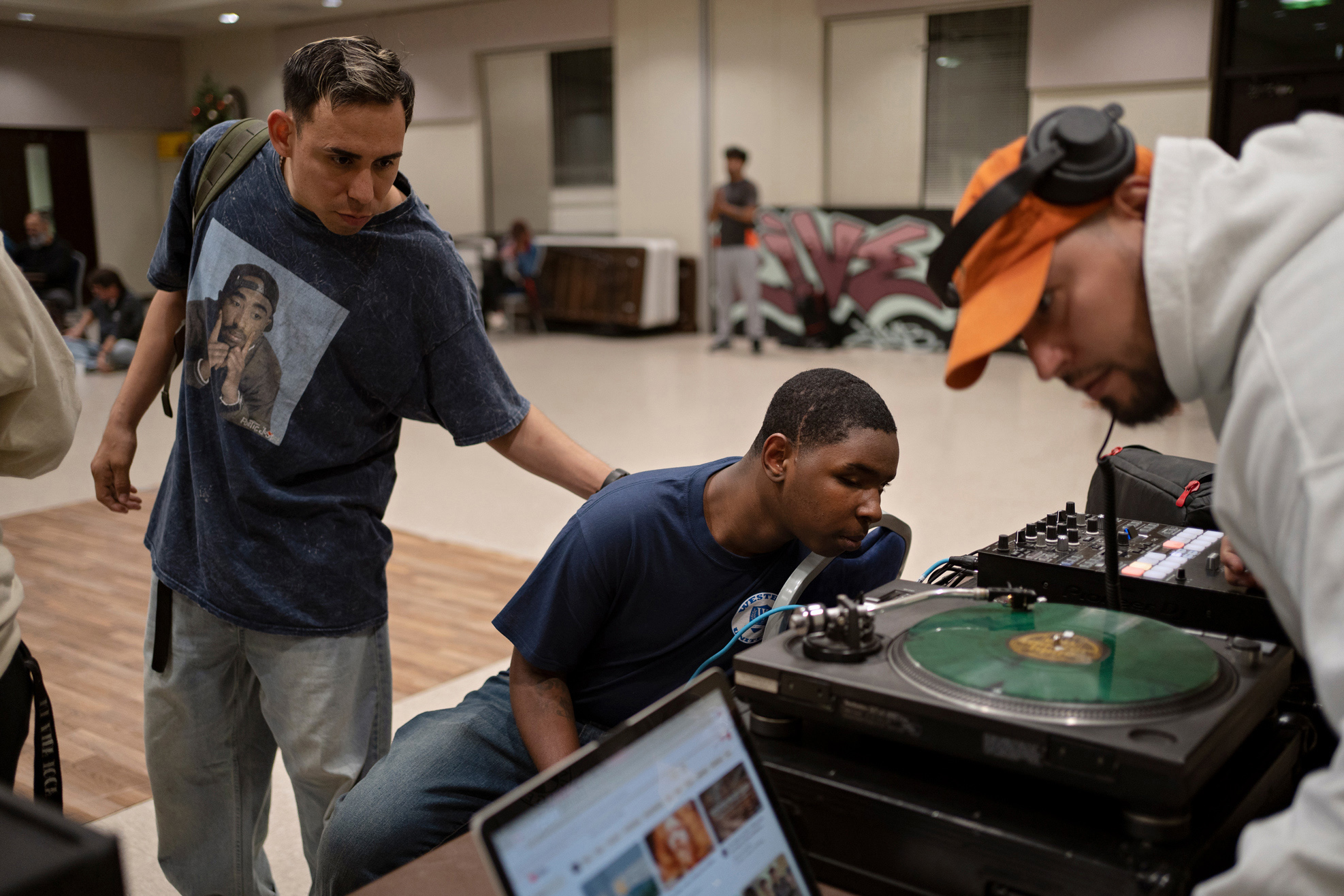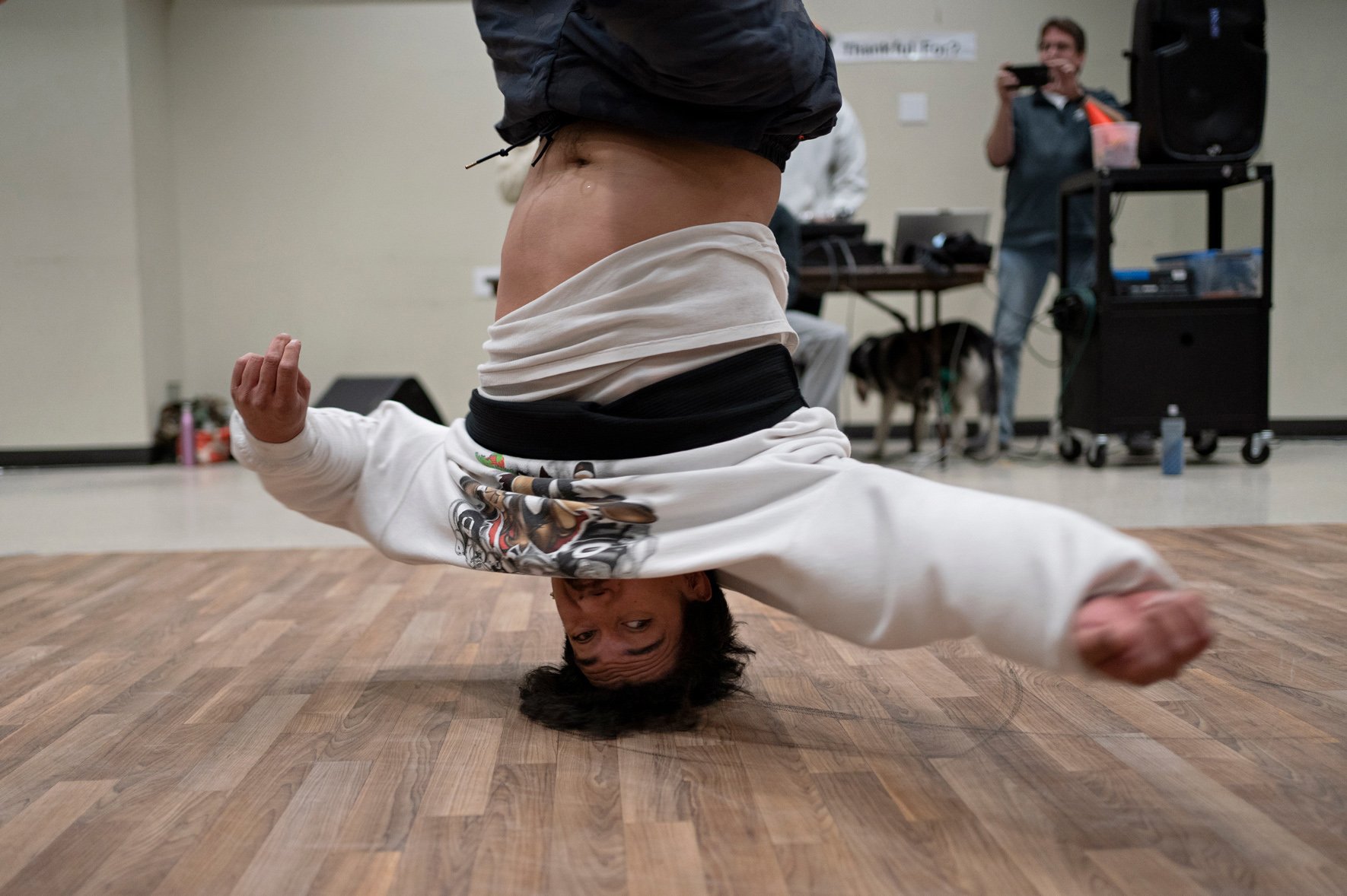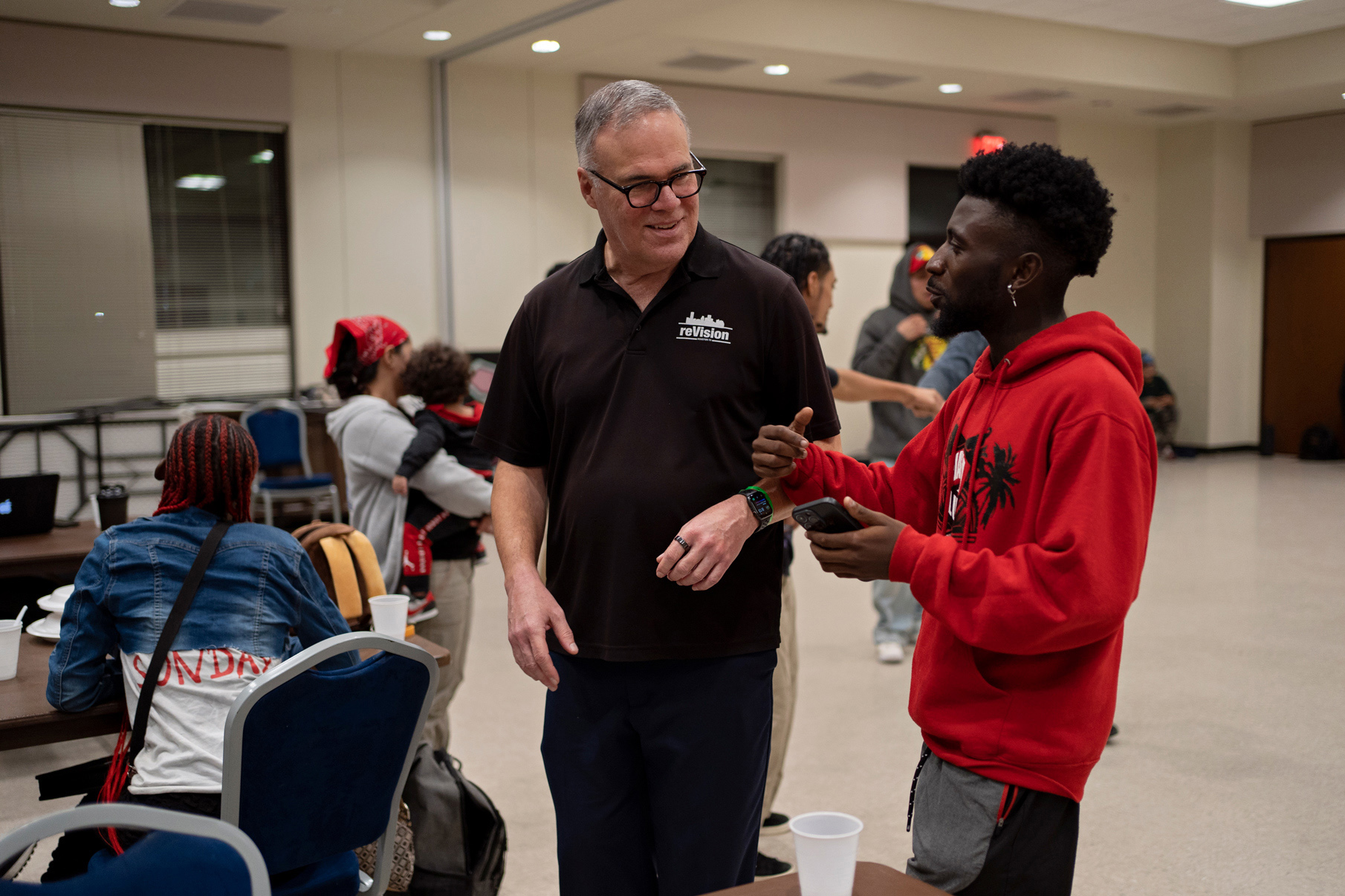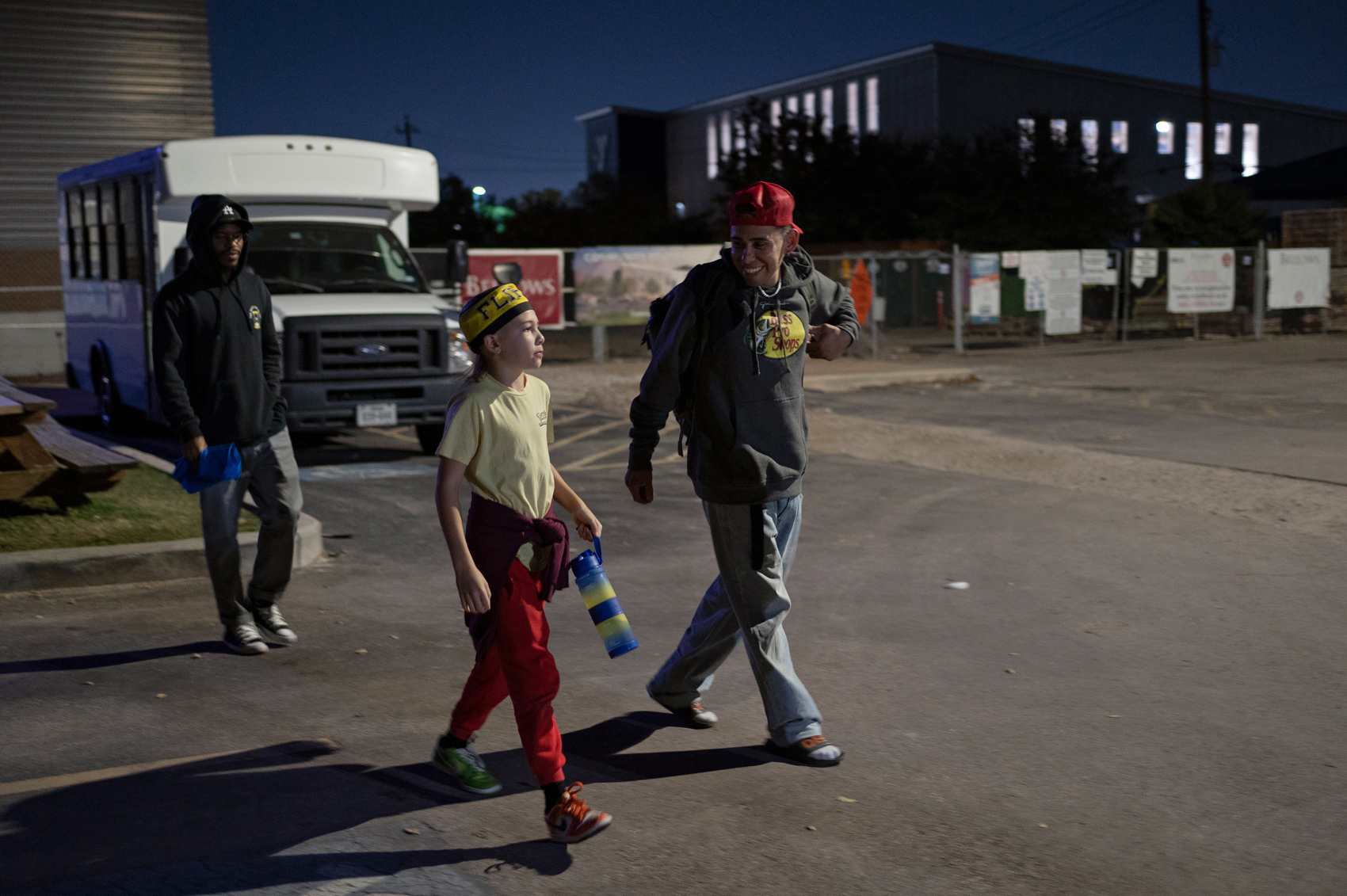|
Getting your Trinity Audio player ready...
|
Byron was 17 years old when he became unhoused, and desperately in need of resources that don’t seem to exist here in Houston. At least not in any codified way. Unhoused 17-year-olds find themselves unable to access resources available for adults, and, in cases like Byron’s, overlooked by programs designed to protect younger children from abuse or neglect.

Now 18, Byron has found a safe place to stay at the home of a nonprofit worker. But even that came as a rare stroke of luck in a luckless year. It also came at great risk for the nonprofit: Housing someone like Byron, without their parents’ permission, can leave an organization vulnerable to accusations of harboring a minor — a class A misdemeanor in Texas.
Simply put, those with an ability to help Byron are put into a situation where they’re damned if they do and damned if they don’t. Which is pretty damned infuriating, don’t you think?



Byron was referred to reVision, a nonprofit focused on breaking the cycle of juvenile justice involvement and homelessness for 16- to 24-year-olds in Harris County, thanks to a caring doctor. Earlier this year, when Byron (who asked that we not use his last name, given issues with his birth family that led to him becoming unhoused) felt ill, he booked an appointment with his longtime pediatrician. During the visit, his doctor asked Byron if everything was OK at home.
No, Byron told him, filling his doctor in on his current living situation. He’d been hopping from one friend’s couch to another after his mother’s boyfriend kicked him out, and was currently struggling to get by in a garage for which the property owner charged 70 percent of Byron’s Whataburger pay.
The doctor — bless him — asked if he could reach out to one of his neighbors who worked for reVision. Soon, Byron left the garage and moved into reVision’s office. It was only a few more weeks until he turned 18, at which point the reVision staff knew they could find a better solution for him. But in the interim, all they could do was staff the reVision campus 24 hours a day as Byron and two other teens crashed in the space until they’d bridged the gap to adulthood.
It wasn’t perfect. But it was the most reVision could do.
And in the absence of other safety nets, the most reVision could do appears to be the most that could be done.
“I’m thrilled you’re looking into this,” reVision’s CEO Charles Rotramel told me in October when I first reached out to him to discuss the lack of solutions available to help unhoused 17-year-olds. “We’ve been in the middle of this conversation with the Harris County Juvenile Probation Department, the Harris County Office of the County Administration and also The Harris Center, because this is an emerging problem: There is no shelter or facility for really, 16- and 17-year-olds who don’t have a place to go.”
At the time, Rotramel told me there were 10 kids in that age range with nowhere to go. “And if it’s 10 at one time,” he said, “that’s 120 over the course of a year. And I think the problem is even bigger than this.”
Many of these kids find themselves unhoused after being released from jail. Remember, in Texas, a 17-year-old — while legally a child — is tried as an adult for criminal cases. But while the Harris County Jail checks for an address upon intake, there are no follow-up inquiries about where they will go at the time of discharge. That’s because there’s no mandate that the county do that follow up for these kids, according to the Harris County Sheriff’s Office. And that, I’d like to note, is a simple solution that could lead to better knowledge of which kids need help finding housing.

“The adult system has to open their door and let them out, and in many cases, they just get discharged to the street,” said Rotramel. “Several of the 10 have a parent who died while they were incarcerated. Sometimes the parents ghost them — they just disappear. Every situation is unique.”
And every situation — if it were acknowledged and then recorded by the county — could become a piece of data that could lead to greater insight for a solution.
I’ve talked to both governmental and nonprofit workers for this story, including a few experts who work for the county. And they tell me one thing that brings promise: There’s a growing consensus that something needs to be done to help vulnerable 17-year-olds who have no safe place to live. There are county buildings that could be put to use. County funds that could be earmarked. Potential policy changes at the jail that could help ensure kids aren’t abandoned upon release.
I’ve heard a wide range of ideas over these past few months. Russell Hall, director of youth homelessness at reVision who stepped up to offer Byron a room in his home after he turned 18, envisions a system in which the county works hand in hand with a family judge who helps these 17-year-olds terminate parental rights so they can more readily access social services.
That sounds like a good start. Because at the moment, the best solution I’ve seen is the one Hall has been able to provide for Byron: a rent-free room in a supportive home where Byron is encouraged to save the money at his current Chipotle gig, and apply for an electrician apprenticeship program, which will set him on a fast-track to sustainability.

But we cannot continue to rely on one good Samaritan at a time to serve as a patchwork system to help kids like Byron. Hall doesn’t have 119 other rooms available in his home for the other kids out there in Byron’s position.
Neither does the county — yet. But one thing I continue to hear from those I’ve spoken with about this topic in the past few months is that they think if there’s enough noise about the issue, action will follow.
Here’s my noise: The county must figure out what it would take to find safe housing for 17-year-olds who have none. And they must start now.
Want to add your own noise? Email your County Commissioner: Precinct 1 Commissioner Rodney Ellis can be reached at [email protected]; Precinct 2 Commissioner Adrian Garcia can be reached at [email protected]; Precinct 3 Commissioner Tom S. Ramsey can be reached at [email protected]; Precinct 4 Commissioner Lesley Briones can be reached at [email protected].
Share your Houston stories with me. We can start on Twitter, Facebook and Instagram. Or you can email me at [email protected]


